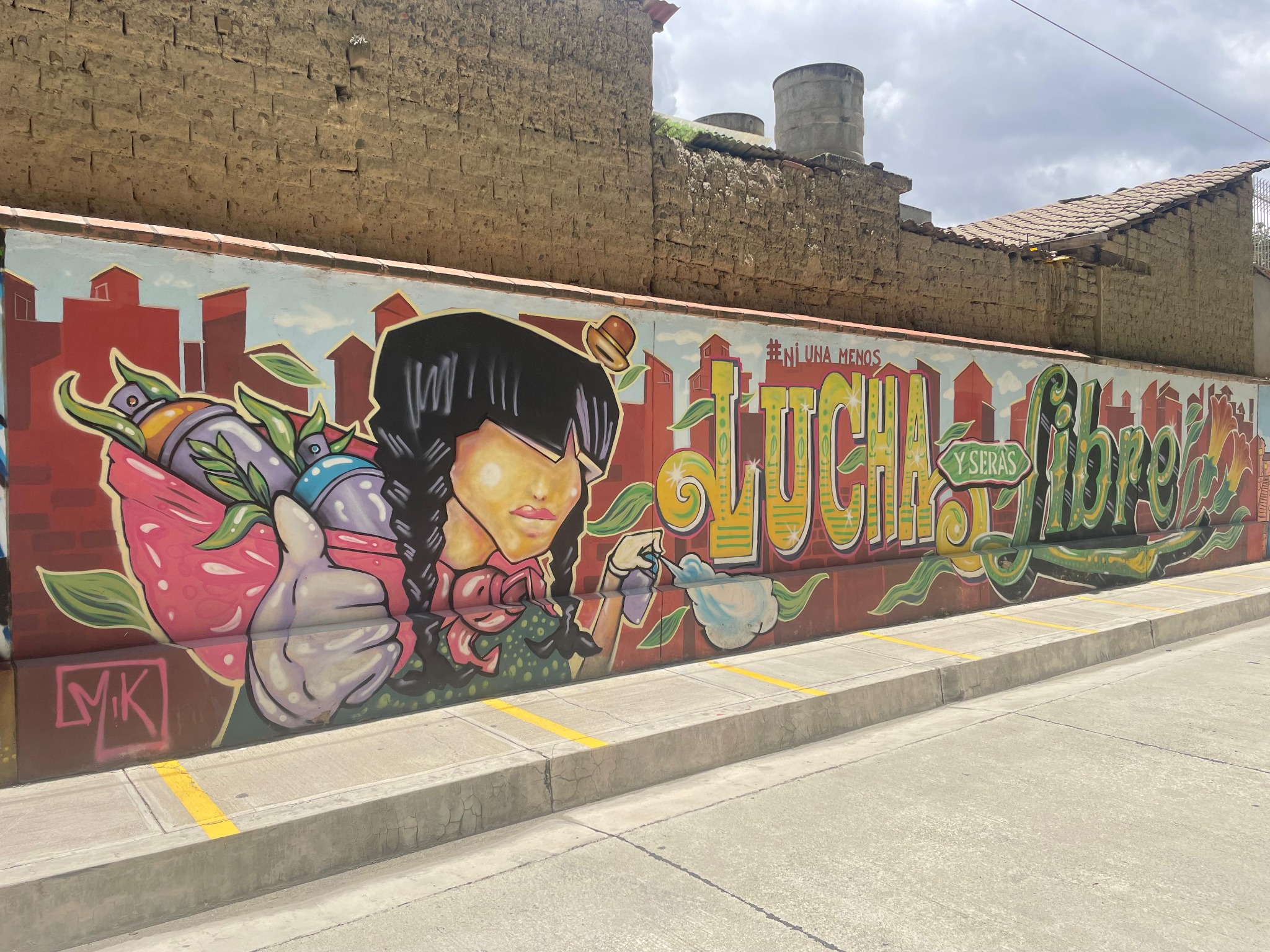348 - The Bolivian Gender Violence Controversy
Law 348 has been intended to protect women from violence to a very large extent. The reality shows that Bolivian women are still at high risk of becoming victims of violence and there are quite a few who advocate its abolition.
Since 2013, a progressive women's law (Law 348) in Bolivia has guaranteed broad standards of self-determination and extensive protection against violence—at least in theory. In practice, many state agencies often fail to take responsibility. Most public institutions responsible for enforcing Law 348 do not provide comprehensive support to women facing violence.
Kafkaesque Bureaucracy and Institutional Failures
Lawyer with experience in gender-based violence Lucía Maya Condo Martínez identifies three main problems: a lack of knowledge of the law, personnel shortages, and insufficient sensitivity towards victims. In El Alto, in particular, the state-run platform for Integral Attention to the Family does not fulfill its task. By law, every municipality is required to establish such a platform and operate a Childhood and Adolescence Defense Office (Defensoría de la Niñez y Adolescencia – DNA) as well as a Municipal Integral Legal Service (Servicio Legal Integral Municipal – SLIM). These services are intended to be staffed by interdisciplinary teams of lawyers, psychologists, and social workers. In reality, however, at least one of these three professions is often missing.
The convoluted process of navigating these institutions is strongly reminiscent of Kafka's The Trial: women need highly specific knowledge about whom to approach and which office to turn to in order to assert their rights. Without this information, they are easily lost in a bureaucratic void where no one takes responsibility.
"They Talk to Women Like They're Selling a Car"
Moreover, women affected by violence are often not taken seriously and are treated without empathy by the public officials responsible for enforcing Law 348. »They all have their titles, but they talk to women as if they were trying to sell a car«, says Condo. » A woman is not only a victim of her situation, but also a victim of a legal approach that prioritizes economic interests over providing real solutions. «
Civil society organizations, such as the Pueblo Foundation, help fill this gap by supporting women in becoming emotionally and financially independent from their aggressors, who are often members of their own families.
According to Condo, there are also differences between cities—for example, the Integral Platforms of Attention to the Family are much more active in La Paz. Additionally, much is happening on a symbolic level. At the Alto Obrajes cable car (Teleférico) station in La Paz, the state commissioned several artists to paint graffiti with the slogan Ninguna Menoson parts of the transportation hub.
Victims behind the numbers
As of December 31, 2024, the Bolivian Public Ministry had registered 84 femicides and 38 infanticides. One case that drew particular attention was that of 21-year-old student Carla, who was murdered in La Paz by her ex-boyfriend out of jealousy over her new relationship. About a week after the murder—and just two days after her body was found—the 22-year-old ex-boyfriend was sentenced to 30 years in prison in a summary trial after admitting his guilt.
Backlash Against Law 348
While some, such as Maya Condo, criticize the implementation of Law 348, others voice more fundamental concerns. Among them are women who have experienced violence themselves. Their opposition often stems from social media reports about real or alleged false accusations against men under Law 348. Many fear that their sons or brothers could be falsely accused or have already faced legal proceedings based on the 2013 Women’s Rights Act.
A 2016 meta-study analyzing seven relevant studies from different countries found that between 2.1% and 10.3% of accusations were false. However, U.S. researchers Huntington, Berkowitz, and Orchowski emphasized in their analysis that, depending on the data source, society and authorities sometimes drastically overestimate this number, with some believing that more than 50% of accusations are false. In reality, more than half of all sexual assaults go unreported.
Too Much Focus on Women?
Another argument against the current law is that it focuses too much on women and thus discriminates against men. Inadequate enforcement, as well as a refusal in some cases to acknowledge that family members can be aggressors, has contributed to growing opposition to Bolivia’s women’s rights law. While supporters (at least of the law’s core idea) demand reforms, opponents would prefer to see it abolished entirely.



Post a comment